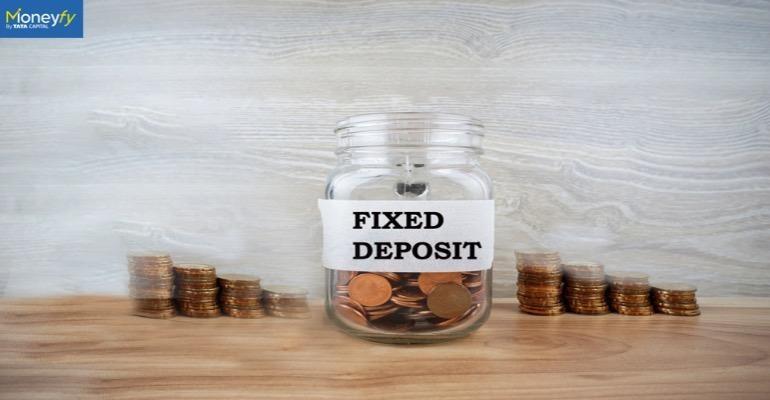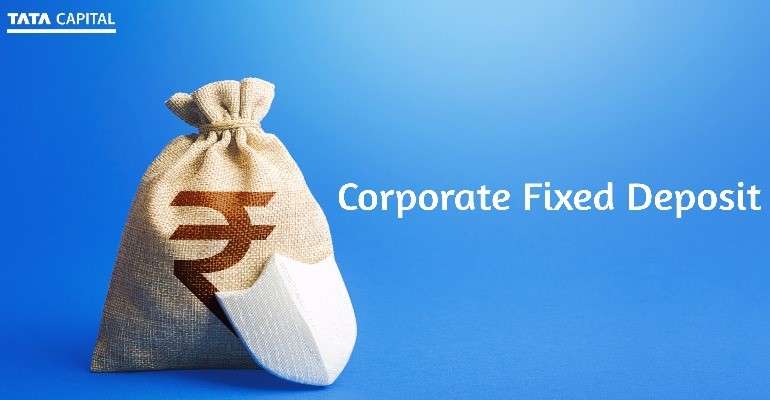This product offering is currently unavailable. We will be back soon. Till then please explore our other products.
In an Indian household, lessons on finance start early. Generally, they begin with a humble piggy bank or ‘gulakk’ in which the child is encouraged to deposit or save their money. And most generous parents add the incentive of rewarding the child with additional money if the stored amount is undisturbed.
Bank fixed deposits (FDs) are a lot like gulakks, only better. Investors deposit a desired sum of money into a fixed deposit account (which may or may not be separate from a savings account) for a fixed tenure. The principal accrues interest at a pre-specified rate until maturity when the account is closed, and the remaining sum is transferred to the investor's savings account (if separate).
If you’re considering FD as an investment instrument, weigh its pros and cons in the balance to know if it’s your investment ideal.
The key features of a fixed deposit account are as follows-
| Features | Description |
| Interest rate | Fixed interest rate throughout the tenure |
| Tenure | Fixed period, ranging from 7 days to 10 years |
| Minimum deposit | Minimum investment amount of Rs. 1000 |
| Maximum deposit | No upper limit |
| Premature withdrawal | Premature withdrawal is allowed under certain conditions and by paying penalty fees. |
| Renewal options | You can choose to renew or withdraw the investment at maturity. |
| Interest payout frequency | Multiple payout options- monthly, quarterly, annually, or at maturity |
| Loan against FD | You can avail of a loan against FD. |
| Tax implications | Interest earnings and maturity amount is taxable under the ITA, 1961 A tax-saving FD offers tax deduction benefits of up to Rs. 1.5 lakhs under section 80C of the ITA |
| Security | Considered a safe and stable investment with capital protection |
| Eligibility | Resident IndiansHindu Undivided Family (HUFs)Non-Resident Indians (NRIs) through NRE/NRO accountsLimited companiesPartnership firmsSole proprietorship firmsClubs/ Trusts/ Societies |
• Safe and guaranteed returns
These investment vehicles are not linked to market movements. As a result, they carry low risk. You get assured returns on your investments. This benefit is reinforced by the fact that the interest rate on FD remains fixed throughout the tenure.
• Loan against FD
In case of financial emergencies, you need not break your FD; you can simply take a loan against it in the form of an overdraft facility. Your pledged FD amount will continue to earn interest during the loan tenure.
• Flexible interest payouts
Not all FD investors want to receive their interest at the time of maturity. If you're one of them, you can opt for the monthly, quarterly, or annual interest payout option. Plus, senior citizens are eligible for higher interest rates on their FD.
Additional Read: What is a Corporate Fixed Deposit?
• Average returns
The degree of risk involved in your investments will be directly proportional to the returns – this is the general rule. Since FDs offer assured returns, their interest rates are low compared to other money-market instruments.
• Lack of liquidity
The money you deposit in an FD cannot be withdrawn until the time of maturity. If you were to withdraw it prematurely, you'd have to pay relevant charges as a penalty. However, you can choose an FD tenure anywhere between 7 days to 10 years as per your requirements.
• Tax factor
FDs do not offer complete tax exemptions. According to the Budget 2019, any interest earned above Rs. 40,000 is taxable at the rate of 10% TDS. Further, the interest income is taxable according to your tax slab. Investors have to submit Form 15G/H if they don’t wish the authorities to deduct TDS on the amount.
Additional Read: Top Investment Options in India with Very Low-Risk Rate
Another major drawback of FD is that it robs you of your opportunity to leverage the power of compounding effect as offered by mutual funds. Download Tata Capital’s Moneyfy app and see for yourself. You can compare between different funds, start an affordable SIP plan if you don’t have a lumpsum, get personalised portfolio recommendations to meet your investment goals, and even explore high-performing funds recommended on a daily basis. Anyone can become a successful mutual funds investor; start your journey today with Moneyfy!
Advantages include stable and guaranteed returns, a facility for loans against FD, and flexible interest payouts. Disadvantages are lower returns than market-linked investments, lack of liquidity, and tax on interest earnings.
The main limitation of a fixed deposit (FD) is its relatively low returns compared to inflation or high-risk investments like equities, which can limit wealth accumulation over time.
Fixed deposits carry low risk, but inflation can erode real returns. Additionally, premature withdrawals may incur penalties, reducing the overall interest earned.



Fd Vs Mutual Fund: Key Differences Between Mutual Fund & Fixed Deposit

Fixed Deposit(FD) Vs Public Provident Fund(PPF): Which Is Better?


What Are CFDs? How Are They Rated? Risk Vs Return Evaluation Of CFDs



FD (Fixed Deposit) vs RD (Recurring Deposit): Which Is Better?

Corporate Fixed Deposit Vs. Fixed Deposit – Which is Better?